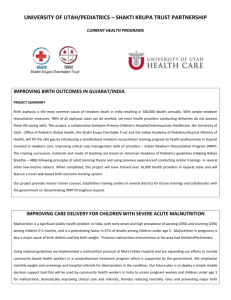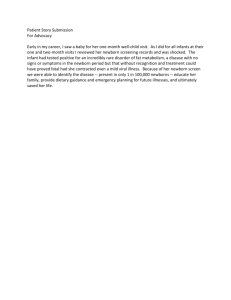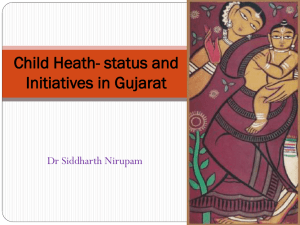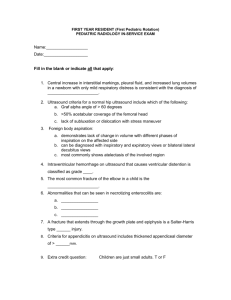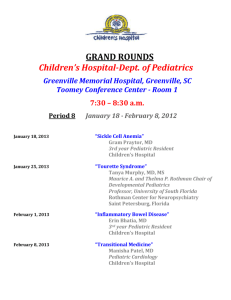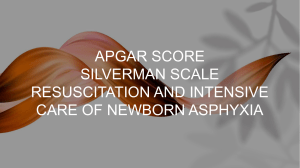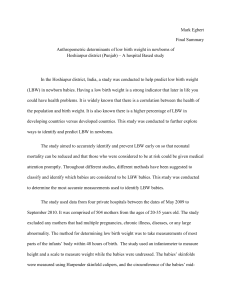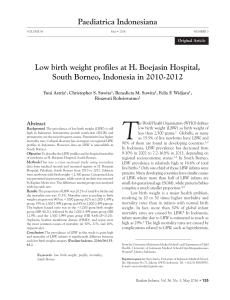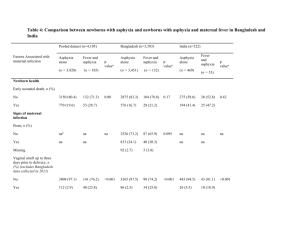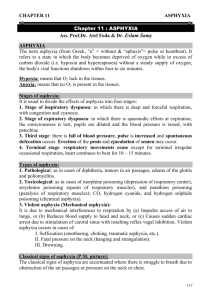resuscitation pediatrics
advertisement
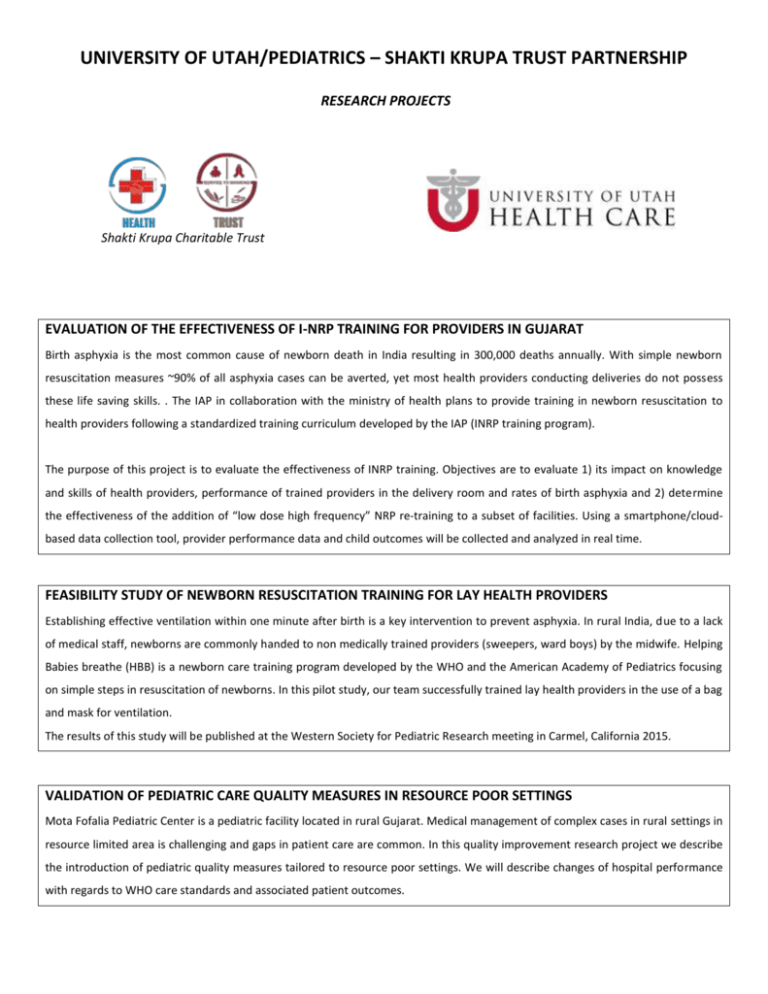
UNIVERSITY OF UTAH/PEDIATRICS – SHAKTI KRUPA TRUST PARTNERSHIP RESEARCH PROJECTS Shakti Krupa Charitable Trust EVALUATION OF THE EFFECTIVENESS OF I-NRP TRAINING FOR PROVIDERS IN GUJARAT Birth asphyxia is the most common cause of newborn death in India resulting in 300,000 deaths annually. With simple newborn resuscitation measures ~90% of all asphyxia cases can be averted, yet most health providers conducting deliveries do not possess these life saving skills. . The IAP in collaboration with the ministry of health plans to provide training in newborn resuscitation to health providers following a standardized training curriculum developed by the IAP (INRP training program). The purpose of this project is to evaluate the effectiveness of INRP training. Objectives are to evaluate 1) its impact on knowledge and skills of health providers, performance of trained providers in the delivery room and rates of birth asphyxia and 2) determine the effectiveness of the addition of “low dose high frequency” NRP re-training to a subset of facilities. Using a smartphone/cloudbased data collection tool, provider performance data and child outcomes will be collected and analyzed in real time. FEASIBILITY STUDY OF NEWBORN RESUSCITATION TRAINING FOR LAY HEALTH PROVIDERS Establishing effective ventilation within one minute after birth is a key intervention to prevent asphyxia. In rural India, due to a lack of medical staff, newborns are commonly handed to non medically trained providers (sweepers, ward boys) by the midwife. Helping Babies breathe (HBB) is a newborn care training program developed by the WHO and the American Academy of Pediatrics focusing on simple steps in resuscitation of newborns. In this pilot study, our team successfully trained lay health providers in the use of a bag and mask for ventilation. The results of this study will be published at the Western Society for Pediatric Research meeting in Carmel, California 2015. VALIDATION OF PEDIATRIC CARE QUALITY MEASURES IN RESOURCE POOR SETTINGS Mota Fofalia Pediatric Center is a pediatric facility located in rural Gujarat. Medical management of complex cases in rural settings in resource limited area is challenging and gaps in patient care are common. In this quality improvement research project we describe the introduction of pediatric quality measures tailored to resource poor settings. We will describe changes of hospital performance with regards to WHO care standards and associated patient outcomes. LBW HEALTH OUTCOMES FOLLOWING IMPLEMENTATION OF A COMPREHENSIVE LBW INTERVENTION Low birth weight is the single most important risk factor for child death in developing countries. For this project we developed a LBW registry of infants born at our facility which allows us to track their health outcomes over time as we implement a variety of LBW specific interventions at the hospital, community health worker and household level. We hypothesize that through a structured approach of improved hospital care, community health worker case management skills, and family level awareness we will improve health and health outcomes of LBW infants from baseline. VALIDATION OF A SMART PHONE BASED APPLICATION FOR PEDIATRIC WEIGHT MEASUREMENT 5 million children in Gujarat need to have their weight assessed every month for malnutrition screening. Obtaining and interpreting weight measurements according to WHO growth norms (z-scores below the mean) is a complex task for community health workers. Our team developed a smartphone based application that estimates the childs weight and degree of malnutrition from a single picture taken by a smartphone. This beta version is being field tested in rural India for validation. If successful, this application will be introduced as the standard management tool for nutrition screenings. FUTURE PROJECTS Improving Management of Malnutrition for Pregnant Women and Children at the Community Level in India using a Mobile Decision Support Tool We will create and deploy a simple mobile decision support tool that will be used by community health workers in India to screen pregnant women and children under age 5 for malnutrition, dramatically improving clinical care and referrals, thereby reducing mortality rates and preventing major birth defects. The mobile system will be deployed and tested by community health workers through a public-private partnership with the Mota Fofalia hospital and directorate of health services in Gujarat. Improving Management of Malnutrition for Pregnant Women and Children at the Community Level in India using a Mobile Decision Support Tool.
